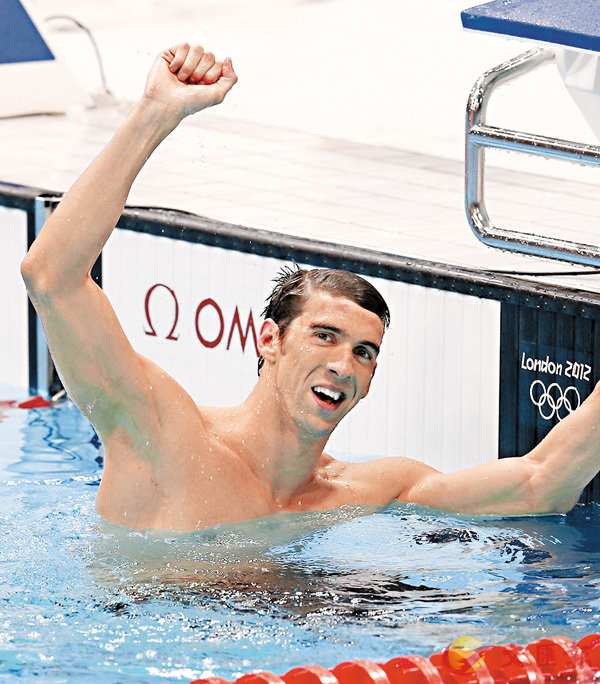 ■運動員菲比斯也曾患有過度活躍症。 作者供圖
■運動員菲比斯也曾患有過度活躍症。 作者供圖【原文】一名懷疑有過度活躍症的男童被勒死,男童外婆涉嫌謀殺被捕。消息指,有人聲稱「唔想佢(外孫)咁辛苦」,並曾企圖自殺。事件令人扼腕唏噓,顯示部分家長照顧精神有問題的子女或晚輩心力交瘁,容易陷入絕望而作出極端錯誤抉擇,釀成倫常悲劇。
香港作為文明富裕的社會,幫助受精神、情緒困擾的患者及家庭,政府和社會各界責無旁貸。政府要有針對性加強資源投入,與社區組織、民間團體等密切配合,積極主動發現、協助有需要的家庭,為他們提供適切支援,避免倫常悲劇重演。
家長照顧患有學習障礙、過度活躍、自閉等問題的兒童,需要付出數倍乃至數十倍於正常兒童的時間和精力,身心俱疲;加上香港生活緊張,居住環境改變令鄰里往來疏遠,又受到中國人「家醜不外揚」的文化影響,照顧有精神問題青少年的家長承受巨大的經濟、心理壓力,不少家長自己也出現情緒問題,一時鑽牛角尖而做出「傻事」,倫常悲劇時有所聞。
統計顯示,本港有逾4萬名兒童及青少年患專注力失調或過度活躍症,其中一半兒童,由求醫至確診及治療,需在公院或公營機構輪候一年以上,約14%更長達2至3年;而私家精神科醫生收費非常高昂,單是診金每次過千元。醫學界人士強烈呼籲政府出手相助,對有精神問題的兒童及青少年支援不足,相關家庭面對的壓力就更大。社會各界應及時施以援手,避免悲劇一再重演。
紓緩有精神問題的兒童及青少年的痛苦,減輕家庭的重負,政府應該增撥資源、增加兒童精神科專科醫生人手,縮減治療輪候時間;社福機構更應扮演積極角色。
如果有問題的青少年及家人,透過與社福機構接觸,由社福機構安排相關的專業訓練,提供語言、行為及情緒的輔導,同時令照顧者學懂減壓,紓緩身心,讓有問題的青少年及家人的路不那麼艱辛。
目前明愛、東華三院及協康會等機構,都有相關的支援服務。經過此次悲劇之後,有關社福機構應加強宣傳,讓更多照顧有情緒問題青少年的家庭掌握資訊,主動尋求協助,不再隱藏問題;對相關的資源需求,政府應該根據實際情況適時增撥,不讓社福機構面對「無米之炊」的窘境。
患有情緒病並不可怕,成功治癒並創出一番成就者大有人在。有「飛魚」之稱、獲得史上最多奧運金牌的美國運動員菲比斯,年少時就患有過度活躍症,更被老師「看死」:「此生將一事無成!」菲比斯選擇利用游泳訓練的專注、情緒控制與紀律,幫助克服症狀,而非依賴藥物,成長後創下世界泳壇傳奇。
香港的各界名人、精英翹楚,亦應該借鏡菲比斯的事跡和愛心,善用自己的名望、金錢,多關心、協助有特殊教育需要的青少年,讓香港多一點愛,少一點悲劇。 (標題為編輯所加) (摘錄自香港文匯報社評19-3-2018)
Government must commit more resources to assist families who are in dire need
【譯文】A boy suspected of having a hyperactivity disorder was strangled to death, and his grandmother was later arrested for murder. According to sources, the grandmother wanted to "end the boy's suffering" and had attempted to commit suicide afterwards. This upsetting tragedy has once again brought to our attention the fact that, many carers are often mentally and physically exhausted, and thus very susceptible to looming family tragedies by making the wrong decision out of despair. In a highly developed and wealthy city like Hong Kong, there is no excuse for the government and everyone of us to not help those afflicted and their families. The government must commit more resources and make a concerted effort with local community groups to proactively identify and assist families who are in dire need, so as to avert similar tragic events in the future.
Parents whose children suffer from learning disability, hyperactivity or autism are bound to sacrifice more time and energy in raising them. Combine such exhaustion with the stressful environment in Hong Kong, alienation between neighbours and the pressure from traditional Chinese taboos, carers of the mentally ill have to sustain enormous economic and psychological burden. Many of them would succumb to the pressure, which in turn clouds their mind and leads to tragedies.
Statistics show that out of the 40,000-plus children and teenage Attention Deficit/Hyperactivity Disorder (ADHD) patients in Hong Kong, half of them spent more than a year waiting for diagnosis and treatment from public healthcare, 14 per cent of them even waited for two to three years. Meanwhile, services from private psychiatrists are unaffordable to many, as a single visit might cost over $1,000. The medical sector have strongly urged the government to intervene, as lack of support would aggravate the problems faced by the already strained families of the mentally ill. The society should lend a helping hand to the needy and avoid the repetition of such painful mishaps.
To ease the suffering and burden of the mentally ill and their families, the government should commit more resources to cut down the waiting time by hiring more paediatric psychiatrists, while welfare non-governmental organisations (NGOs) should take up a more active role. If welfare NGOs could arrange speech and behavioural therapies, professional counselling and stress management training, life could be much easier for both the patients and their families.
Caritas Hong Kong, Tung Wah Group of Hospitals and Heep Hong Society are some of the NGOs that already offer these services. Having experienced this tragedy, local welfare groups should step up their efforts in raising public awareness, so that families in need could reach out for help and receive proper education. To avoid shifting the burden to NGOs, the government should also prepare to allocate more resources and provide help.
Mental illness is nothing to be afraid of, as many have overcome the adversity and achieved great success. Michael Phelps, history's most decorated Olympian and a swimmer nicknamed the "Flying Fish", was diagnosed with ADHD as a child and was told by one of his teachers that he "would never amount to anything and would never be successful". Instead of depending on medication, Phelps harnessed his symptoms and became a swimming legend by training up focus, emotion control and discipline with practices in the pool.
Like Phelps, Hong Kong's celebrities and elites should spread the love and help young people with special educational needs with their fame and fortune, and hopefully there will be less tragedies in our home.■Jeffrey Tse [ywc_jeffrey@hotmail.com]
Exercise
1. 專注力失調或過度活躍症
2. 特殊學習障礙
3. 自閉症
4. 兒科
5. 言語治療
Answer
1. Attention Deficit/Hyperactivity Disorder (ADHD)
2. Specific Learning Disability
3. Autism
4. Paediatrics
5. Speech Therapy

